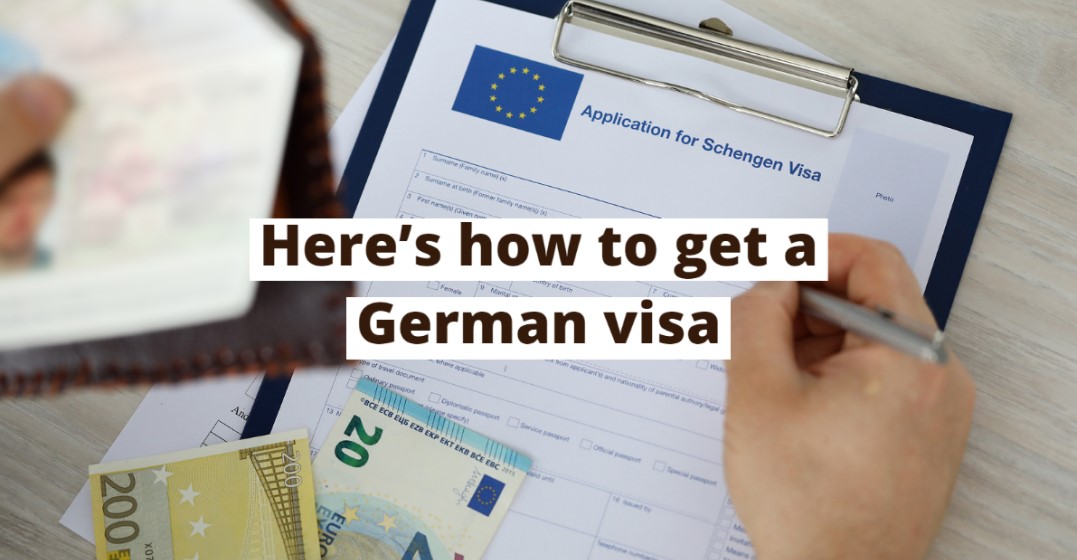Germany is part of what’s known as the Schengen area. The Schengen agreement of 1985 allows citizens of member states to travel freely throughout the territory. Foreigners, that is nationals of non-Schengen countries, can enter Germany and the other member states with one document: the Scengen visa. We’ll explain how to get a visa for Germany and how to apply for a Schengen visa.
How to apply for a visa to Germany
What is the Schengen area and visa-free travel?
When you enter Germany, you are permitted to visit the other Schengen countries as well (with a few exceptions):
- Austria
- Belgium
- Czech Republic
- Denmark
- Estonia
- Finland
- France
- Greece
- Hungary
- Iceland
- Italy
- Latvia
- Lithuania
- Luxembourg
- Malta
- Netherlands
- Norway
- Poland
- Portugal
- Slovakia
- Slovenia
- Spain
- Sweden
- Switzerland
- Liechtenstein
A short-stay Schengen visa is valid for a maximum of 90 days within a period of 180 days. Citizens of more than 60 countries can opt for this practically visa-free stay in Germany.
Who needs a visa and the different types for Germany
If you’re not a national of a country that has arranged visa-free travel with the European Union, you need a visa to enter Germany and the Schengen area. Similarly, if you don’t come from a Schengen country and want to stay long-term, you will need the right type of visa for your purpose.
The most frequently used Germany visas are:
- Tourist and visitor: This will suit you if you plan to visit and travel for more than 90 days.
- Job seeker: If you don’t have an offer for employment but want to look for work in Germany or the Schengen area, you’ll need this visa.
- Studying and language learning: This visa allows foreigner to stay and attend a language school or study at an educational institution in Germany
- Working visa: For employees with a job offer in Germany.
- Business visa: In case the main purpose of your long-term stay is business.
What are the German visa requirements?
The German embassy in your country can provide you with an updated checklist of the requirements for each specific type of visa. However, for any application for a Germany visa you’ll have to provide the following documents:
- Application form: You can download it online or get it from the German embassy. It needs to be filled out correctly.
- Passport: Your passport must be valid for three months beyond your planned stay in the Schengen area!
- Photo: You’ll need to provide a recent picture of yourself, taken within the last three months, and conforming to the embassy requirements.
- Proof of health insurance: Your coverage needs to include the whole Schengen area. Ask your insurance provider or the German embassy if your insurance is adequate for Germany. You can find more information about German travel insurance here .
- Financial details: Depending on your visa type, you could be asked to declare your financial situation in the form of a bank statement.
It’s also likely that you have to show a travel itinerary, business plan, proof of business partner, or any other document that supports your claim of what you’re going to do in Germany.
Application process for a German visa
The Germany visa application process includes the following steps:
- Contact the German embassy in your country and inquire about the required documents. Get a checklist for your specific type of visa for Germany.
- Gather the documents and fill out the application form.
- Schedule an appointment at the German embassy. These commonly take place within the six months preceding your trip to Germany.
- If required, pay the visa fee and save the receipt.
- Bring all the documents and proof of payment to your embassy appointment. You’ll take part in a short interview and either receive your visa or instructions on which additional documents you need to provide.
The general fee for Schengen visas is 60 euros. However, different types of visas might have a slightly higher fee of 80 or 75 euros. In many cases, due to your status or nationality, you might be eligible for a reduced fee or might not have to pay one at all.
Jakob Straub
Jakob is a freelance writer in Barcelona, Spain, and his favorite books have pages all empty. As an expert storyteller, he publishes creative fiction in English and German and helps other authors shape their manuscripts into compelling stories. Thanks to an expertise in a wide range of topics such as writing, literature and productivity to marketing, travel, and technology, he produces engaging content for his clients. Apart from the escape that books offer, Jakob enjoys traveling digital nomad style and stays active with climbing and hiking. Find out more about him on his website or on Goodreads.
Start your 7-day free trial
